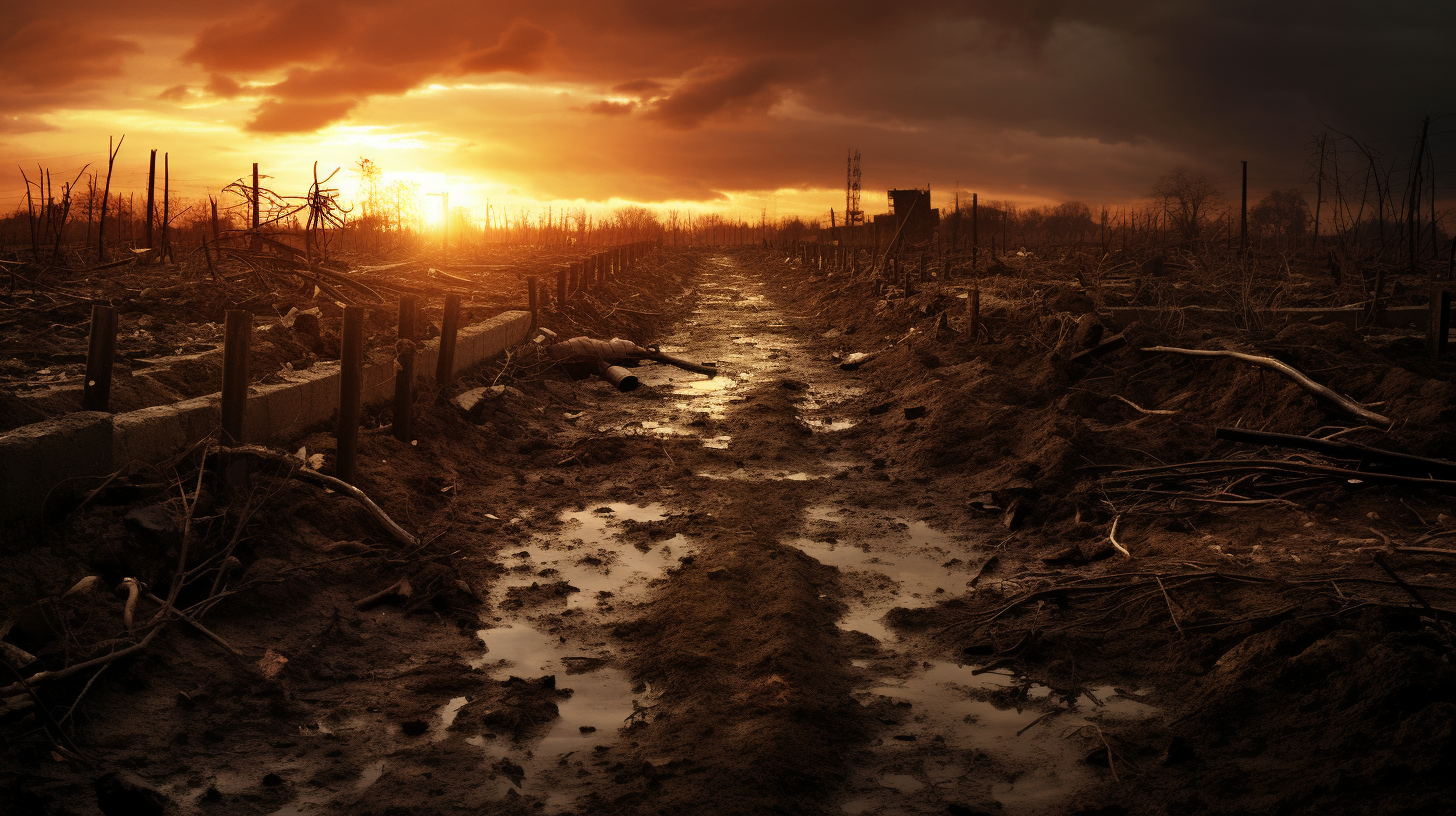In the face of an unrecognizable landscape, where once bounteous fields lay barren, where wildlife has turned ghost, and where the laughter of the market has been stifled by an ominous hush, one must ponder – did humanity’s hubris doom the harvest?
Our world, once vibrant and nurturing, has been reduced to hues of brown and gray by relentless droughts, the insatiable consumption of our planet’s resources, and the ceaseless pumping of pollutants into our skies. Our hubris, our pride in technological might, has blinded us; we believed ourselves masters of nature, but the desiccated earth beneath our feet tells a rueful tale of conquest gone astray.
‘To err is human, to forgive divine,’ wrote Alexander Pope, yet as we stare into the abyss of our creation, we note an eerie silence; nature, it seems, has forgiven us not. The fruits of our labor wither on the vine, as Dr. Aleksei Dryden‘s warnings resonate unheeded in the echoes of scarcity. Where we sought to thrive, we have disturbed the very equilibrium that supported our existence.
The marketplaces, once the pulsing heart of our communities where abundance and prosperity were celebrated, now lay silent, a morbid mausoleum to a past prosperity. Our actions have etched an indelible mark upon the world, narrating a cautionary tale of downfall – a tale that cries out from the dust-blasted pavements and abandoned stalls.
Survival – a term once associated with the wilderness, has now crept into the lexicon of the common man. Hunger, a specter from the past, haunts towns and cities alike. The images of empty-eyed children and despairing farmers that we documented in ‘Hunger Pangs as Fields Turn to Dust’, are a grim testament to this facet of our reality. Our predictions, once dismissed as alarmist, now unfold before us with a chilling accuracy.
No longer can we speak of the ‘cycle of the seasons’, for the seasons themselves have turned their backs on us. The patterns of weather that danced harmoniously with the sowing and reaping of crops have been replaced by erratic bursts of heat or chilling silence. It is not the land alone that suffers; wildlife, both flora and fauna, cling to survival in this hostile world.
As we chronicle this descent, we discern the societal threads unraveling. The fabric that once held communities together is tearing, strand by strand, under the weight of need and the sheer will to endure. This new dystopian normal is not some speculative future – it is the vivid present, a tableau of the once unheeded prophecies.
Our technological advancement, once our pride and heralded savior, has been reduced to echoes in hollowed fields. Of what use are drones, when there is no crop to survey? What use is agricultural science when the very soil we wish to nurture turns to dust beneath our fingers?
We stand as solemn witnesses to the fall, our voices narrating the saga of this green dystopia. Our words, somber and compelling, invite you to look out upon this altered expanse and question – were we the architects of our own demise?
Indeed, the echoing question hangs heavy in the air: Did humanity’s hubris doom the harvest? There is no triumph here, no last-minute salvation to pluck from the jaws of downfall. It is a stark analysis, a memento of a pivotal moment when we crossed the Rubicon of environmental catastrophe.
Yet, here lies the bitter irony – our collective consciousness, through the lens of environmental neglect, becomes an admonition for urgent action. An action, though, that in the unwavering narrative of this magazine seems a desperate clutch at redemption; for the chance to heal the wounds we have inflicted appears to have withered like the fields of our forebears.
And so, we leave you with a haunting reflection: to save the future, we must understand how we have shaped the present. But as we dwell in a world where hope remains as barren as the earth itself, one wonders whether understanding alone is enough to reclaim a life that once was, or whether it is merely the eulogy of a distant dream of verdancy.
